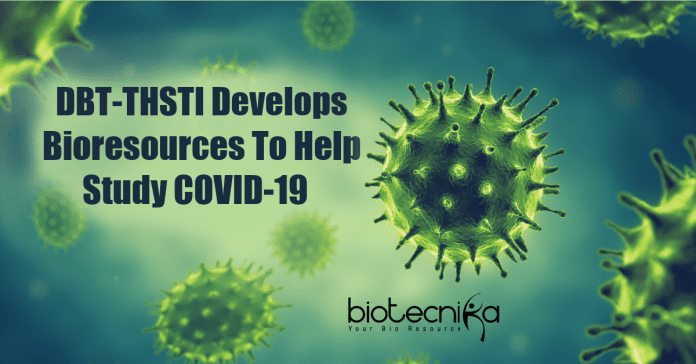Bioresources to help study COVID-19 pandemic developed by DBT-THSTI
The Department of Biotechnology’s Translational Health Science and Technology Institute (DBT-THSTI) based in Faridabad has established a set of patient cohorts as a part of the National Bioresource Centre for COVID-19, which is an initiative of DBT, its autonomous institutions, as well as healthcare facilities in Delhi and also various other parts of the National Capital Region.
The following COVID-19 Bioresource was developed by the Biorepository facility at THSTI:
● Standardized well phenotyped serum panel for testing of antibodies (development and evaluation sera panels)
● Pooled samples to develop calibrators/controls (both positive and negative for SARS-CoV-2 for diagnostic assays)
● Standardized nasopharyngeal/oropharyngeal panels for testing of antibodies and
● Viral strains, and inactivated virus
More than 4,000 samples have been collected from individuals that were suspected of COVID-19 infection, regardless of whether they tested positive or negative. Around 2,000 people who have tested positive are being followed up with around 250 individuals having given samples 6-10 weeks after being diagnosed.
The THSTI’s Biorepository has got 20 requests from industry and academia. It has actually responded to 12 requests and others are being processed through an external access control board, developed by
DBT, that independently chooses the value of each application. The requests consist of those for COVID-19 positive sera and plasma, COVID-19 negative samples, as well as sera and nasopharyngeal/oropharyngeal swabs in viral transport medium.The Biorepository has given a total of 2,400 sera samples and 130 naso- and oro-pharyngeal swabs till now in response to the requests. 8 development sera panels (including samples from 100 participants), two naso-oropharyngeal panels (75 samples), 4 assessment panels (samples from 100 participants), pooled positive standard, and pooled negative standard have been shared.
Additionally, DBT-THSTI provides diagnostic performance analyses, and also most recently has examined ELISafe 19 IgG ELISA for SARS-CoV-2 developed by Syngene International Ltd/Himedia for 3 manufacturing batches by a ‘beta-testing panel’ and a Q-Line IgG Rapid card for SARS-CoV-2 created by POCT Services Pvt. Ltd. and RGCB by a development panel.
Bioresources to help study COVID-19 pandemic developed by DBT-THSTI
Author: Sruthi S






























